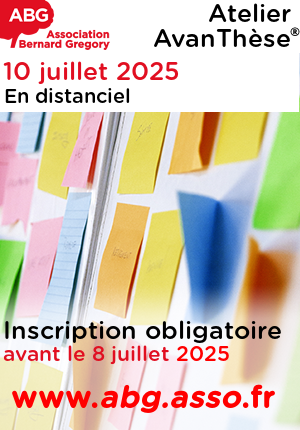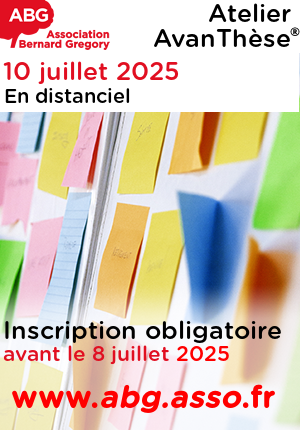Identification and control of the sensorimotor loop of spoken voice production
| ABG-131487 | Sujet de Thèse | |
| 28/04/2025 | Contrat doctoral |

- Sciences de l’ingénieur
- Psychologie, neurosciences
Description du sujet
This thesis proposal aims to develop new control engineering techniques (experimental apparatus and algorithms) to advance our understanding of a neuroscientific question: how humans control the sound of their voice.
From a neuroscientific point of view, human speech is made possible by a sensorimotor feedback loop (‘vocal feedback’) in which speakers speak, hear what they have just said and correct themselves if necessary. This system is fast and largely automatic: for example, when we hear ourselves speak with a delay of a few hundred milliseconds, we cannot help but stutter (Stuart et al., 2002); when we modify a speaker's voice in their headphones so as to increase its pitch, they automatically adjust the pitch of their voice downwards to compensate, with a delay of around 300 ms (Burnett, Senner & Larson, 1997).
This phenomenon is the subject of a great deal of work in neuroscience (including in our team: see Aucouturier et al. 2016; Goupil et al. 2021). This work mainly uses the ‘altered feedback’ methodology, which introduces perturbations to the perceived voice (e.g. higher or lower than it was produced) in ‘near-real time’ using signal processing manipulations, and studies the effect on the voice produced. Although this system is essentially a closed-loop architecture, it has mainly been studied in open-loop (i.e. with pitch manipulations that do not depend on the observed output of the system), and the community seems to have completely missed the ‘control engineering’ aspect of the problem: only one paper, marginal though by one of the leading teams in the discipline (Guenther lab, Boston University), proposed to do parameter identification of a PID controller, but did so in open-loop (i.e. with data already collected) and for the average behaviour of a group (Kearney et al, 2022). In practice, however, the individual response of participants is highly variable, both across participants and across time within the same participant. Understanding this variability could give rise to major theoretical advances (e.g. the question: are good singers also good talkers?) and applications (e.g. could system parameters be biomarkers for detecting early Parkison's ?).
The proposed project involves developing a new real-time voice feedback device (developed under LabVIEW on a CompactRIO/FPGA target), allowing the implementation of signal processing algorithms in deterministic time (i.e., without jitter), both in hardware and software ; and to use it experimentally in order to model, identify and control the sensorimotor system at the level of each participant individually. System identification will provide parameters that will be tested as possible biomarkers of different vocal characteristics of the participants (e.g. native vs. foreign language speech, spoken vs sung voice), and may also give rise to a clinical application in the context of Parkinson's disease. Control, i.e. constructing a voice manipulation command signal adaptively to the real-time produced voice in order to control its characteristics, will make it possible to create a striking cyber-physical system (= making a person sing without their knowledge, when they believe they are maintaining a stable voice on headphones), and open up possible applications for therapeutic interventions (e.g. for stuttering, or traumatic stress disorders).
Prise de fonction :
Nature du financement
Précisions sur le financement
Présentation établissement et labo d'accueil
The successful applicant will join the FEMTO Neuro team, a small, recently-established interdisciplinary group of scientists (currently 2 PIs, one postdoc, three PhD students) exploring control-systems approaches to the analysis of human sensory electrophysiology. The Femto neuro team is part of the larger System Data Science group, a group of 7 faculty working on data-driven analysis, pronostic and health management of natural, industrial and environmental systems, and based in the Department of Automation and Robotics, FEMTO-ST Institute in Besançon, France.
Work in the Neuro team is both experimental (we collect our own EEG and behavioural data) and computational (we build our own software methods), with a strong focus on clinical applications (see our recent work here). The team also has a strong focus on open science, and develops and maintains a number of free, open-source research software which are made available for the research community. In Besançon, the PhD candidate will be supervised by Dr Jean-Julien Aucouturier (Directeur de recherche CNRS) and Patrick Nectoux (Ingénieur de recherche CNRS)
With more than 750 researchers, the FEMTO-ST Institute (CNRS/Université de Bourgogne Franche-Comté) is the region’s largest engineering CNRS lab, with expertise covering all fields of system science. The neuro team is based in FEMTO’s Department of Automation and Robotics, which hosts about 80 researchers active in the fields of robotics, mechatronics, automatic control and artificial intelligence.
A world-heritage UNESCO site close to the French-Swiss mountains of Jura, Besançon is a vibrant, mid-size regional capital city regularly ranking best-in-France for its quality of life and surface green spaces per inhabitant, but also boasts a newly-federated university (Université Marie et Louis Pasteur) of more than 50k students.
Site web :
Intitulé du doctorat
Pays d'obtention du doctorat
Etablissement délivrant le doctorat
Ecole doctorale
Profil du candidat
This thesis project will be suitable for a student holding a Research M2 and/or an equivalent engineering degree with a good background in automation (identification, closed-loop control, instrumentation) and/or signal processing (linear systems, sound signals, real-time).
Expected technical skills include Python (e.g. data analysis in pandas/seaborn) and LabVIEW programming (instrumentation, real-time). Knowledge of the cRIO environment or other embedded systems (arduino, etc.) could also be useful. Finally, experience with open source software, and sharing and documenting code under git/github will also be appreciated. Profiles that do not meet all these criteria are of course welcome, as long as candidates can demonstrate an appetite for learning.
As the project is experimental in nature (device development, experimentation on humans), the ideal candidate will have an appetite for experimentation and methodological development, demonstrated for example by previous experience in a Masters internship. Finally, as the intended application is neuroscientific, an interest in and/or additional training in cognitive science or neuroscience would be an advantage - although not a requirement.
Vous avez déjà un compte ?
Nouvel utilisateur ?
Vous souhaitez recevoir nos infolettres ?
Découvrez nos adhérents
 Laboratoire National de Métrologie et d'Essais - LNE
Laboratoire National de Métrologie et d'Essais - LNE  MabDesign
MabDesign  ASNR - Autorité de sûreté nucléaire et de radioprotection - Siège
ASNR - Autorité de sûreté nucléaire et de radioprotection - Siège  Tecknowmetrix
Tecknowmetrix  TotalEnergies
TotalEnergies  Institut Sup'biotech de Paris
Institut Sup'biotech de Paris  Nokia Bell Labs France
Nokia Bell Labs France  ADEME
ADEME  CESI
CESI  Ifremer
Ifremer  MabDesign
MabDesign  Groupe AFNOR - Association française de normalisation
Groupe AFNOR - Association française de normalisation  ONERA - The French Aerospace Lab
ONERA - The French Aerospace Lab  SUEZ
SUEZ  ANRT
ANRT  CASDEN
CASDEN  Aérocentre, Pôle d'excellence régional
Aérocentre, Pôle d'excellence régional  PhDOOC
PhDOOC  Généthon
Généthon







